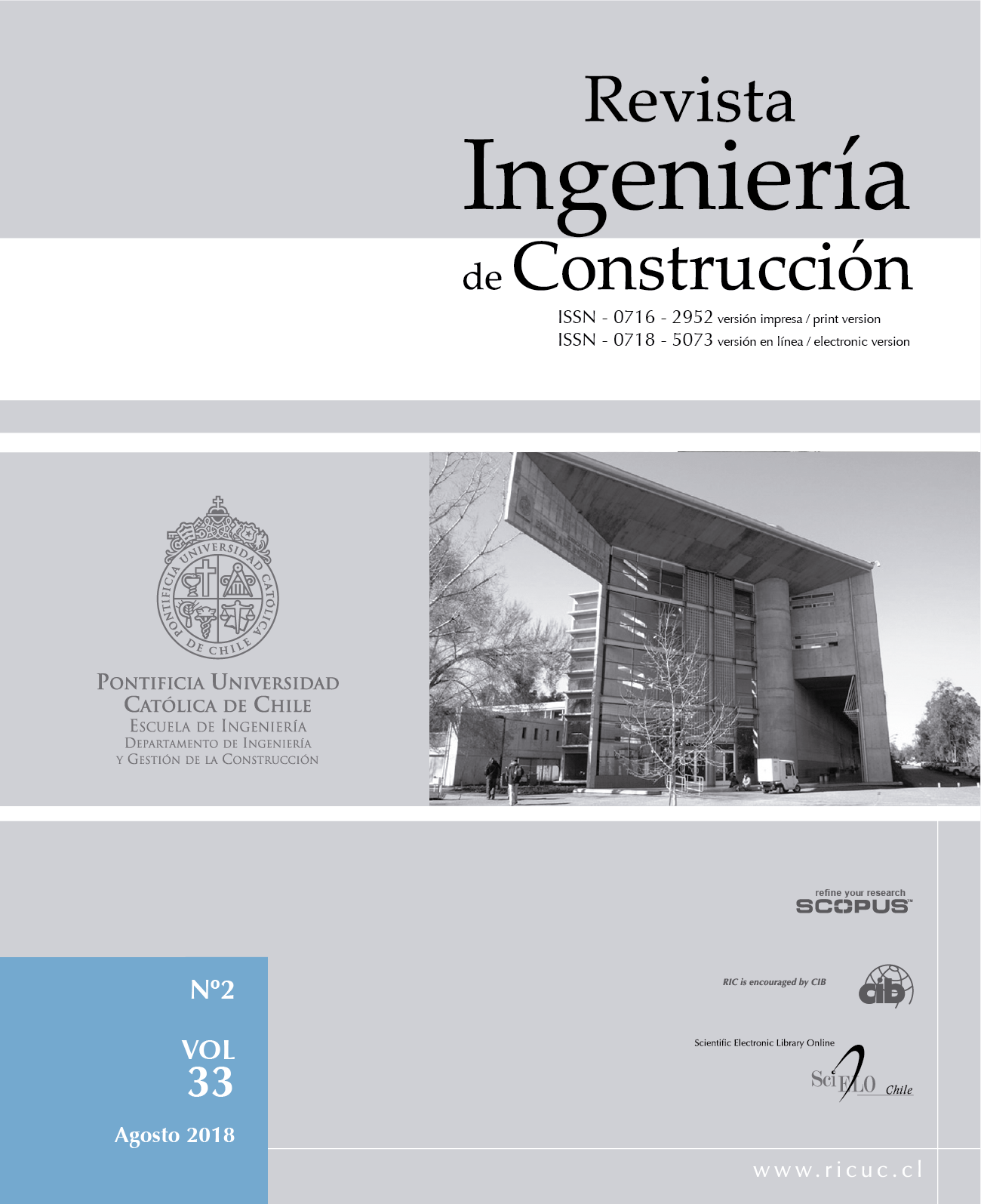Effect of treatments on high initial strengh portland cement and mosso bamboo compatibility
DOI:
https://doi.org/10.4067/S0718-50732018000200127Keywords:
Vegetable Biomass, composites, Mosso bamboo, treatmentsAbstract
The objective of this study was to evaluate the effect of six different types of treatment on mosso bamboo biomass (Phyllostachys pubescens) in order to verify its compatibility with Portland cement. The treatments adopted for mosso bamboo were: immersion in different solutions as to know: cold water, hot water, sodium hydroxide, sodium silicate, silane and calcium chloride. The degree of compatibility was determined through the study of the hydration heat rates in the first 24 hours and the compressive strength after 7 days of the bamboo-cement composites. The influence of the crystallinity of the fibers was analyzed using X-Ray Diffractometry. Results indicated that the addition of 4% calcium chloride to the blend is the most efficient treatment to decrease the species inhibitory capacity, while treating the raw material with sodium hydroxide adversely affected to the binder. The treatment with cold water presented the highest composite compressive strength and the treatment with silane presented the highest fiber crystallinity index.


